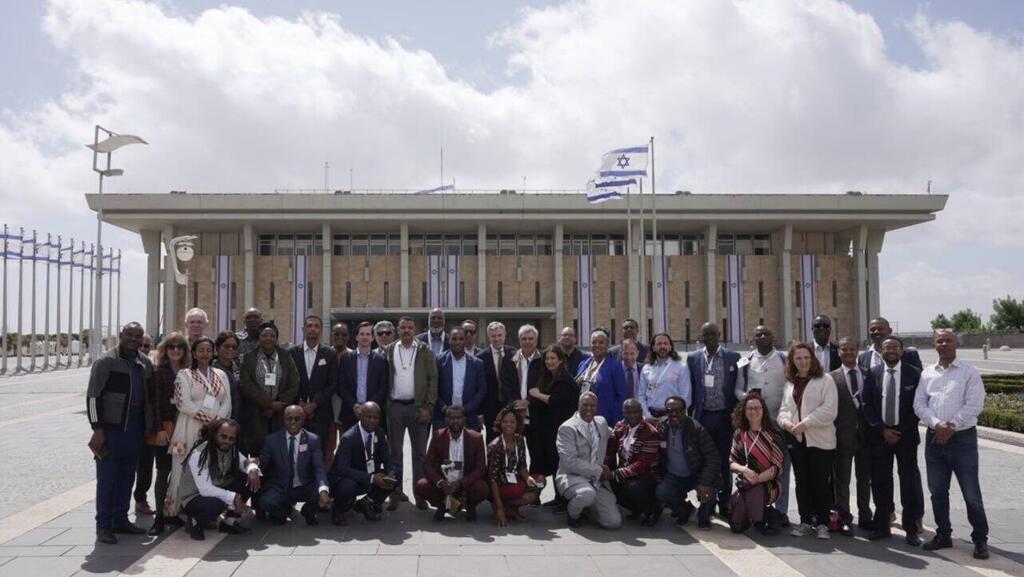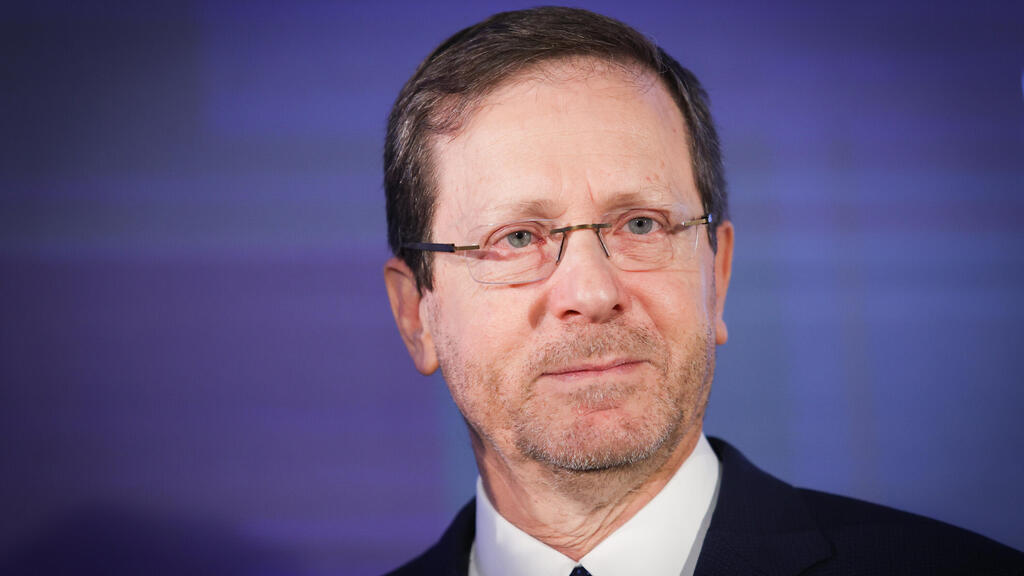Getting your Trinity Audio player ready...
More than 20 guests from various countries in the Gulf and Africa arrived in Israel on Wednesday for a historic visit to Jerusalem.
Related Stories:
Among the guests, some of whom came from countries with which Israel has no diplomatic ties, are representatives of think tanks, applied-diplomacy institutes, and journalists. They will be taking part in a three-day conference on Israel’s relations with African and Gulf countries.
2 View gallery


Guests from African and Gulf countries came for a historic visit to Jerusalem
( Boaz Oppenheim for JCPA)
Among the guests who came to the conference, initiated by the Jerusalem Center for Public Affairs, are representatives of Saudi Arabia, Somalia, Djibouti, Tunisia, Mauritania, and Sudan—states that do not have diplomatic ties with Israel. In addition, representatives came from the United Arab Emirates, Bahrain, Chad, Ethiopia, Ghana, Jordan, Kenya, Morocco, Namibia, Nigeria, Rwanda, Saudi Arabia, Somaliland, South Africa, South Sudan, and Uganda. Among the attendees were the former head of the Journalists Association of Bahrain and a senior Saudi reporter.
In addition to panels on Israel’s relations with the Gulf States and with African countries, the guests toured important sites around the country, visited the Knesset, and met with Knesset Speaker Amir Ohana. President Isaac Herzog sent a recorded welcome message to the participants, and National Security Council chief Tzachi Hanegbi held a discussion with them.
Dan Diker, president of the Jerusalem Center for Public Affairs, said: “This is an unprecedented, historic meeting of representatives of countries that, in the current climate, were not supposed to come to Israel and discuss strengthening Israel’s ties with Africa and bolstering the Abraham Accords.”
“They agreed to come to Jerusalem to talk about the concept of national security in the broad sense of the term, which includes not only the war on terror and radicalization but also desalination, food security, and the war on hunger.”
Abdel Aziz al-Hamis, former economics editor of the Saudi newspaper Asharq al-Awsat, which is published in London in Arabic, and who now anchors an interview program on Sky News in Arabic, said at the conference: “Saudi Arabia is the most important hub of the region. If it joins the Abraham Accords, all the Gulf States will join.”
“They’ll see Israel as a friend and it will be easier for them to cooperate. Without Saudi Arabia, the Abraham Accords won’t go any further.”
Abdel Aziz al-Hami added: “This is beyond economics, it’s history. You’re talking about a country that can bring Israel to many other countries. You have to look at it this way: peace with Saudi Arabia is not just an economic opportunity—it’s the door to an overall solution.”
The president of the Jordanian Organization for Medical Assistance, Dr. Yarup Ajlawani, said: “Jordan can help you from an economic standpoint. We are open to cooperation, and are not against doing business in the region, but you have to be cheaper.”
"There’s competition, and in Israel, everything is more expensive than in other countries. In such a situation it’s hard to do business. In London or Budapest we can buy even kosher meat at a lower price.”



